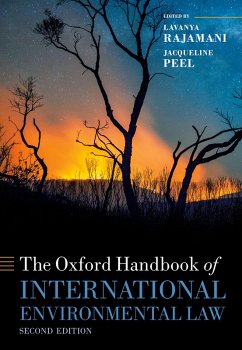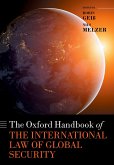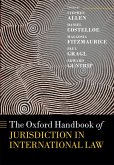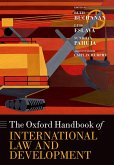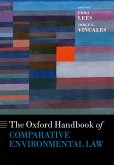The second edition of this leading reference work provides a comprehensive discussion of the dynamic and important field of international law concerned with environmental protection. It is edited by globally-recognised international environmental law scholars, Professor Lavanya Rajamani and Professor Jacqueline Peel, and features 67 chapters authored by 76 renowned experts in their fields. The Handbook discusses the key principles underpinning international environmental law, its relevant actors and tools, and rules applying in its substantive sub-fields such as climate law, oceans law, wildlife and biodiversity law, and hazardous substances regulation. It also explores the intersection of international environmental law with other areas of international law, such as those concerned with trade, investment, disaster, migration, armed conflict, intellectual property, energy, and human rights. The Handbook sets its discussion of international environmental law in the broader interdisciplinary context of developments in science, ethics, politics and economics, which inform the way in which environmental rules are made, implemented, and enforced. It provides an introduction to the foundations of international environmental law while also engaging with questions at the frontiers of research, teaching, and practice in the field, including the role of Global South perspectives, the contribution made by Earth jurisprudence, and the growing role of a diverse range of actors from indigenous peoples to business and industry. Like the first edition, this second edition of the Handbook is an essential reference text for all engaged with environmental issues at the international level and the applicable governance and regulatory structures.
Dieser Download kann aus rechtlichen Gründen nur mit Rechnungsadresse in A, B, BG, CY, CZ, D, DK, EW, E, FIN, F, GR, HR, H, IRL, I, LT, L, LR, M, NL, PL, P, R, S, SLO, SK ausgeliefert werden.

